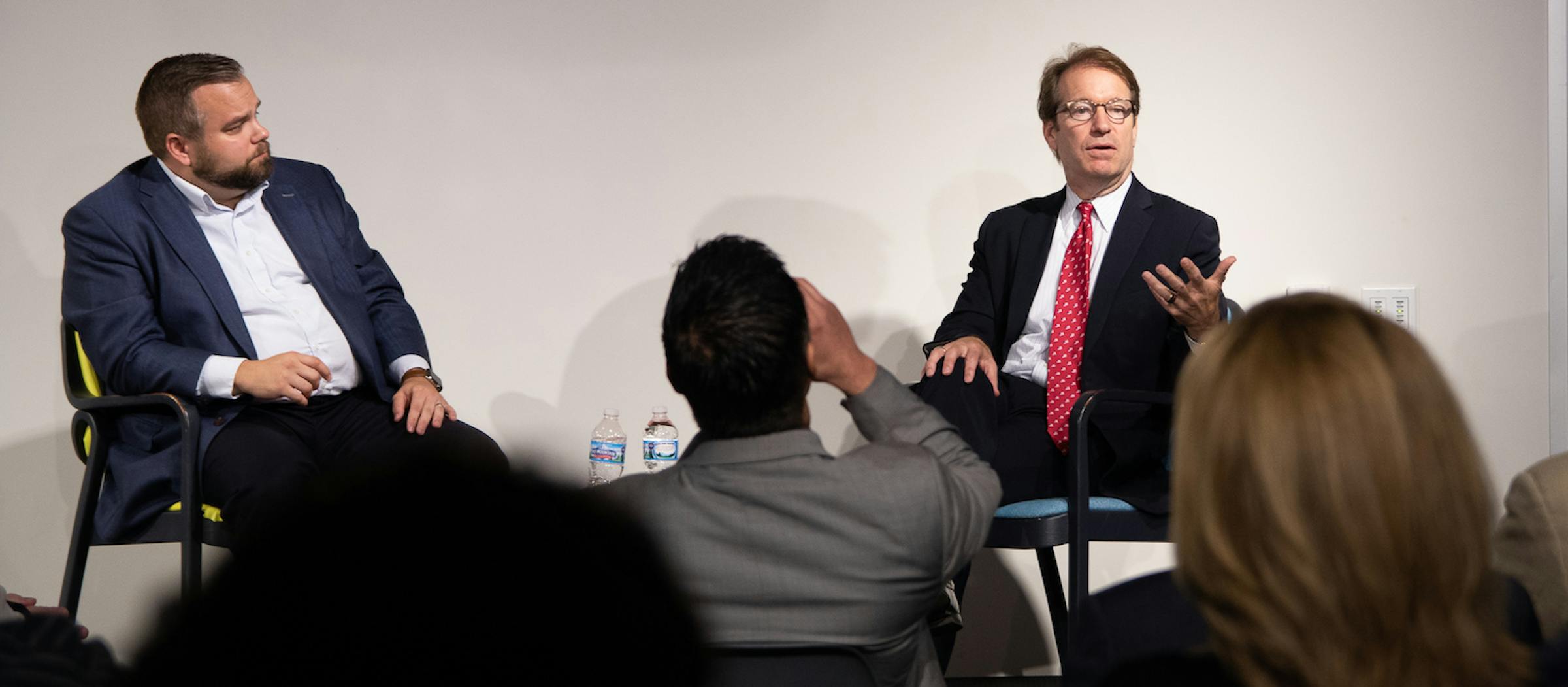A conversation with U.S. Representative Peter Roskam
Decisions made in Washington can have profound effects on our healthcare system — everything from biomedical research, to insurance and the delivery of care, to the factors that help shape overall health and wellbeing.
In advance of the 2018 midterm elections, MATTER, the Health Care Council of Chicago (HC3) and the Illinois Biotechnology Innovation Organization (iBIO) have extended invitations to congressional representatives and major-party candidates from Chicago-area congressional districts to discuss their positions on healthcare with our communities.
U.S. Representative Peter Roskam (R-IL, 6th District) joined us at MATTER on August 13 for a conversation with members of the MATTER, HC3 and iBIO communities. He shared his views and positions on healthcare policy and responded to questions from the audience. Below are a few highlights from our conversation with Representative Roskam.
On changing the conversation about healthcare
“As a country, we’re stuck in our discussion about healthcare. We’re not necessarily nostalgic to go back to before the ACA, but where we are now we feel very unsettled. The big question is: Where are we going? The problem politically is that if you ask a member of Congress what their view is on the ACA, you get to this discussion on the ACA that immediately divides. You’ve got two teams and they’re talking right past each other.
“One group looks at the ACA as orthodoxy, and one group as heresy. There lies the continuous nature of the problem. So, what we’re doing is trying to pose a new question in the hopes of getting a new answer. Instead of relitigating the public discussion about the ACA, we went directly to the healthcare providers to ask: What are the regulations you’re dealing with that make no sense, that are duplicative, or that are just nonsense?
“If you pose that question, you invite a different discussion. That discussion is that one person’s overburdensome regulation is another person’s patient protection, and there are ways to navigate through that to figure out where the balance is.”
On the medical device tax
“It’s an important issue because it’s job-related. I think there could be a decent consensus ultimately if we come up with some kind of deal to repeal the medical device tax entirely.”
On the opioid crisis
“I gave a talk about the opioid crisis and my observation is that there are really no clean hands here. The federal government is complicit. For years, the federal government would evaluate healthcare providers on how they mitigated pain. Obviously, that creates an incentive for physicians to write a script. Medicare also reimburses for many opioids. Pharma’s got a lot to answer for too. There’s been fundamental misrepresentation about the addictive nature of opioids. Physicians in some cases played “not it,” where they didn’t want to deal with the underlying problem of a patient and have been quick to write a script. We as the public, we don’t like pain and we put our physicians and our healthcare providers under a lot of pressure. When we do that, we put ourselves at risk.
“So everybody is involved in this [crisis and the effort to address it]. We’re revisiting how Medicare reimburses things. We’re trying to lock people into a prescription program so it’s harder to shop around and we’re looking into synthetic opioids.
“The question is how do we move forward from here? We brought in experts to walk us through how to deal with it. During the debate, people were realizing it’s all these little things that are part of the crisis, and there were dozens of pieces of legislation the House moved with an overwhelming bipartisan vote. It’s our hope that the Senate takes it up and adopts the things we passed.
“I think in ten years’ time, our country is going to have a different and a better discussion on opioids based on the bipartisan response that we’ve seen.”



